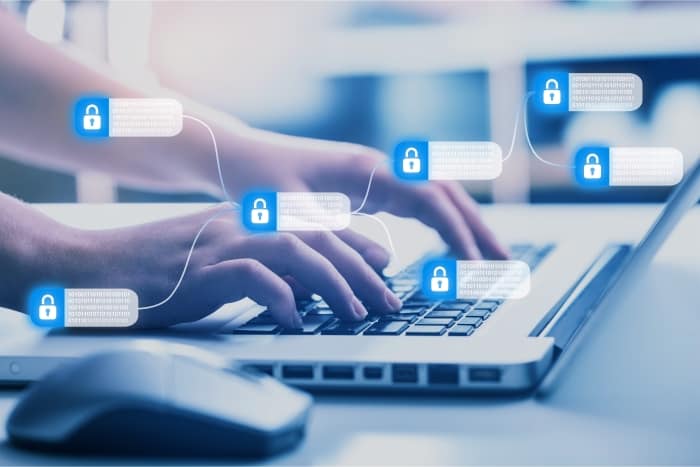
With the growth of block chain and amid rising interest in technology applications for real estate, or “proptech,” more property professionals are hearing about smart contracts, but the meaning of the term is not always clear.
There are many definitions, but generally a smart contract is an agreement that needs no external action to execute the terms of the contract. Once the conditions for its execution have been met, the contract completes the agreed actions automatically.
To not require external action, the terms by which the contract is executed, including the consideration to be paid and when that payment is due, must all be digital so that a computer program can follow through on the agreement without outside help.
For example, you and I could make a contract, under the terms of which, I agree to pay you $100 if the temperature today goes beyond 100 degrees Celsius. For that contract to be executed, there must be a digital feed of the temperature that the program can access, and my $100 must be in a form that can be transferred without further interaction.
This type of contract has been available for many years – simply by writing a program that can access a digital temperature feed and issue a transfer instruction that my bank will process. This program is not difficult to create, however, the approach to executing an agreement was not popularised due to the risk that bad actors could hack the code and change the terms under which the contract executes. The program could be changed to make payment to a different bank account, or to pay a larger amount, or to execute at a lower temperature.
The reason that smart contracts have suddenly achieved headline status is because of blockchain. Not Bitcoin, but the underlying blockchain technology. Blockchain’s distributed ledger technology improves the security of the code to the point where in theory, the program cannot be hacked. This makes the whole idea of a smart contract more feasible as the code can be trusted to do what it says it will do at the specified time.
Why are Smart Contracts Important?
Blockchain provides an independent, mutually verified register of information. As long as the originating parties attest to the information and post it to a blockchain register, the blockchain system will ensure it is not changed in any way – at least in theory.
While blockchain has been used at scale for some time without documented cases of hacking, there is no absolute certainty that blockchain contracts, or any other solution based on the technology, cannot be hijacked by bad actors. Let’s assume that blockchain technology is a reliable repository for a smart contract.

Bernie Devine, Regional Director for Yardi Systems
Beyond the issue of potential hacking, there are other challenges involved in implementing smart contracts, not the least of which are that they are written in specific programming languages. This means that, assuming the contract is complex, you now need a lawyer who understands the programming language used to implement your smart contract.
Secondly, the contract will want the consideration to be available in a form that all parties are able to accept.
The other key requirement of a smart contact is its ability to determine if the conditions required for execution have been met.
Take our temperature example; in the absence of a digital feed to supply weather information, you rely on a human to input the value, which creates a risk of accidental or deliberate manipulation. Hence the desire for being able to test the conditions related to the contract digitally.
If an external data source is incorporated in the smart contract which confirms that a condition of the agreement has been met, these are called Oracles. The risk with an Oracle is that they can be misinformed, they can forget (if they are human), they may accidentally cause an error when processing data or they may choose to or be forced to deliberately provide incorrect information.
In cases where every condition can be tested digitally and carried out by reliable, known and trusted sources, the contract can then be relied upon to be executed correctly.
How Smart Contracts Can Benefit Real Estate
In the real estate industry, a classic example of where a smart contract could be implemented would be for transfer of a property title. For transfer of title tied to payment of consideration by the buyer to the seller, smart contracts will, in most cases, require an oracle to communicate between banking systems and a property registry. There are now a small number of places where property registries have been digitised and are held on a blockchain.
In domains where property registries have been taken entirely online and are accessible to outside users, a smart contract can complete a land sale transaction, potentially saving property investors significant time and fees.
While the potential savings are attractive to property industry professionals, in most jurisdictions the transfer of ownership is represented by a piece of paper and a smart contract needs a human to confirm the existence and authenticity of that piece of paper before it can execute – thus limiting the utility of smart contracts for these cases.
In addition to purchase and sale agreements for properties, other examples in the real estate industry where smart contracts could increase certainty of execution, streamline processes and reduce costs include rental agreements; service agreements involving multiple activities, complex levels of service or service credits; commission agreements where certainty of payment is required; as well as service guarantees and warranties.
What Should Property Professionals Do Next?
With any new innovations, there are growing speculations about the impact of smart contracts, with some analysts even predicting that these technical documents will do away with the need for lawyers.
In our view, while there are potential benefits to the real estate industry from smart contracts, at least initially, they may even cause legal costs to go up, due to the need for lawyers who can understand and test these high tech agreements.
To tame issues around oracles, smart contracts will need to rely on digital data sources, Internet of Things devices and reliable third-party data sources. For property companies, this means that increasing use of sensors and enhanced connectivity in buildings will be required to enable smart contracts related to property conditions.
The nature and form of smart contracts may well change as experience grows. Learning from mistakes will be part of that and the true benefits may not yet be fully known.
This sponsored feature is contributed by Yardi. Learn more: www.yardi.com/asia

Leave a Reply